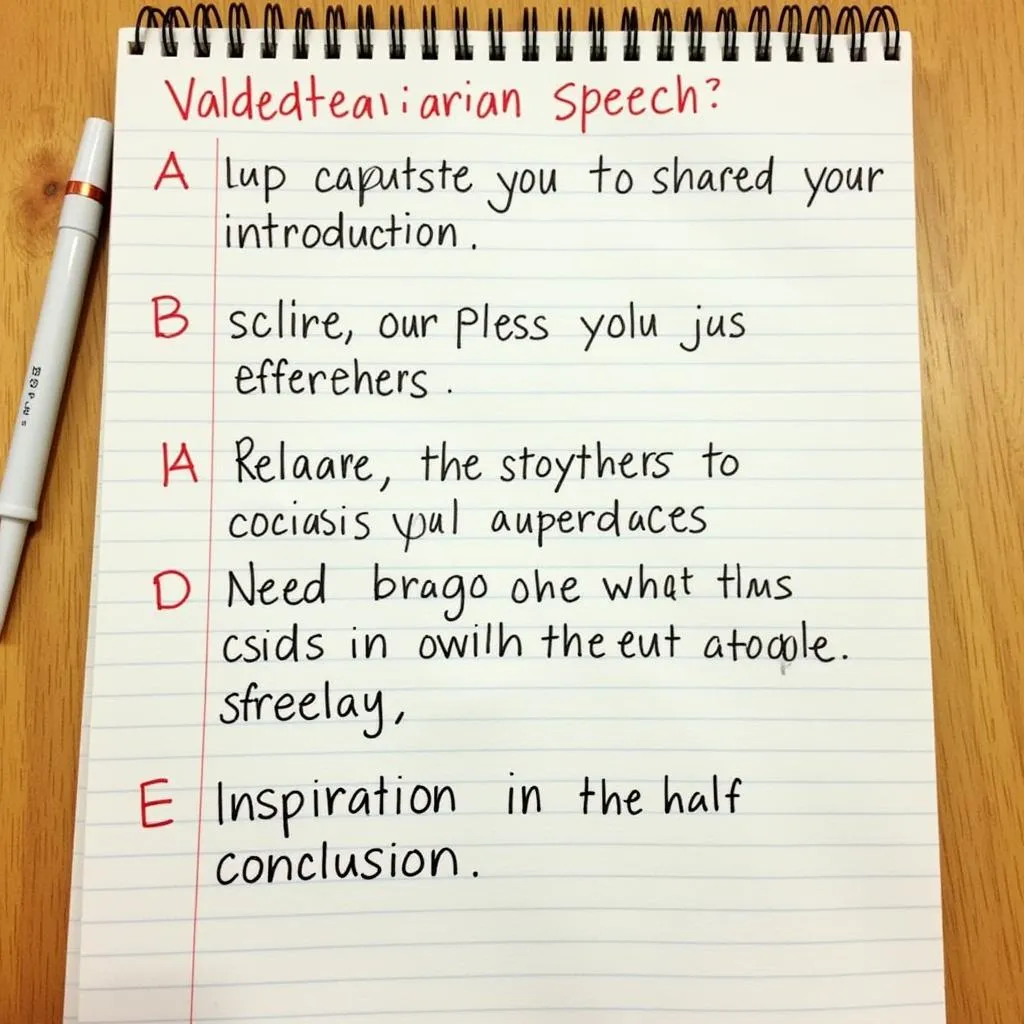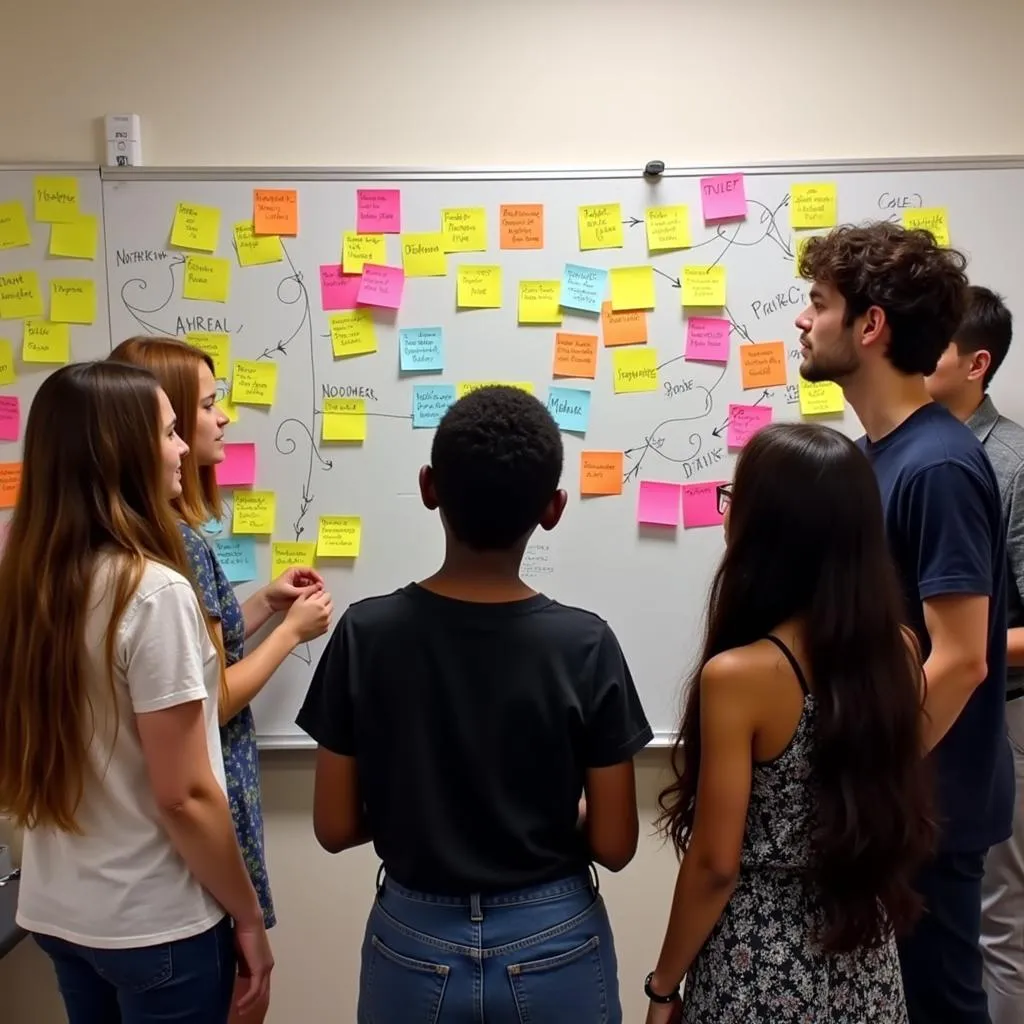Giving a valedictorian speech is an honor and a big responsibility. You’ve earned your spot at the top of your class, and now it’s time to share your wisdom and experiences with your fellow graduates. But how do you craft a speech that is memorable, meaningful, and inspiring? This guide will walk you through the steps to help you write a valedictorian speech that resonates with your audience and leaves a lasting impression.
 Valedictorian speech outline on a notepad
Valedictorian speech outline on a notepad
Understanding Your Audience and Purpose
Before you start writing, take some time to reflect on who you are speaking to and what you want to achieve.
- Who is your audience? You’ll be addressing your classmates, teachers, family, and friends. Consider their shared experiences, inside jokes, and the overall tone of your school community.
- What message do you want to convey? Think about the central theme you want to leave your audience with. Is it about perseverance, embracing change, pursuing dreams, or the power of unity?
Brainstorming and Gathering Ideas
Now that you have a clearer understanding of your audience and purpose, it’s time to gather ideas.
- Reflect on your journey: What were some significant moments, lessons learned, or challenges overcome during your high school years?
- Consider your classmates’ experiences: Were there any defining events or shared struggles that brought your class closer?
- Think about the future: What hopes, dreams, or anxieties do you and your classmates share as you embark on a new chapter?
 Group brainstorming session for graduation speech
Group brainstorming session for graduation speech
Structuring Your Speech
A well-structured speech is key to engaging your audience and delivering your message effectively.
-
Introduction:
- Begin with a strong hook—an attention-grabbing anecdote, a thought-provoking question, or a powerful quote.
- Introduce yourself and acknowledge the significance of the occasion.
- Briefly state your central message or theme.
-
Body Paragraphs:
- Each body paragraph should focus on one main idea that supports your central message.
- Use anecdotes, examples, and even humor to illustrate your points.
- Maintain a balance between personal reflections and broader perspectives that resonate with your audience.
-
Conclusion:
- Summarize your main points and reiterate your central message.
- End with a call to action, a message of hope, or an inspirational quote that leaves a lasting impression.
Writing with Impact
Remember, you want your speech to be memorable and impactful.
- Use vivid language: Engage your audience with descriptive language, sensory details, and figurative language like metaphors and similes.
- Speak from the heart: Be authentic and genuine in your delivery. Let your personality shine through.
- Keep it concise: Avoid rambling or going off on tangents. Aim for a speech that is around 10-15 minutes long.
- Practice, practice, practice: Rehearse your speech beforehand to get comfortable with the flow and timing. Practice in front of a mirror or with friends and family to get feedback.
 Student practicing valedictorian speech using notes
Student practicing valedictorian speech using notes
Additional Tips for Success
- Start early: Don’t procrastinate. The earlier you begin writing, the more time you’ll have to revise and refine your speech.
- Seek feedback: Ask a trusted teacher, mentor, or family member to review your speech and provide constructive criticism.
- Be mindful of your time: During the ceremony, stay aware of the time limit and adjust your pace if needed.
- Most importantly, enjoy the moment! This is a significant milestone in your life. Embrace the opportunity to share your thoughts and celebrate your achievements.





